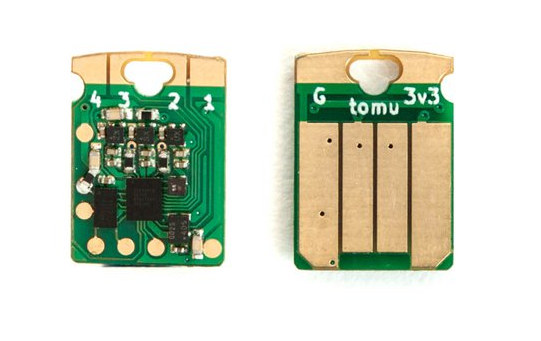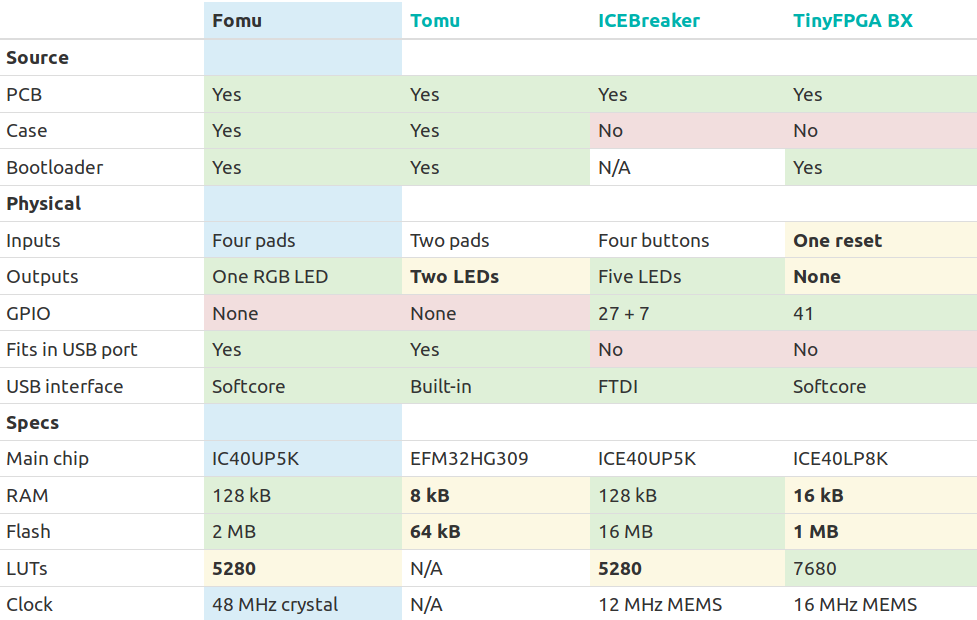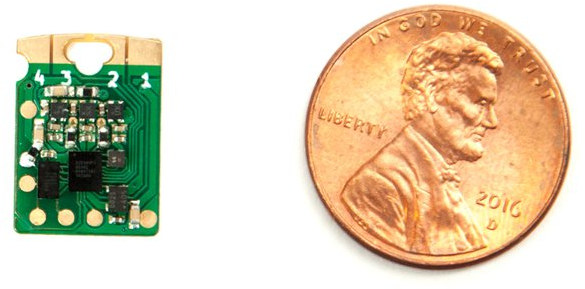Sutajio Ko-usagi launched Tomu, a tiny open source hardware USB board that fits inside a USB port at the very beginning of this year. The company is back with a similarly shaped board, but instead of featuring a Silicon Labs EFM32 Arm Cortex-M0+ microcontroller, Fomu is equipped with a Lattice ICE40 UltraPlus FPGA.
- FPGA – Lattice ICE40UP5K FPGA with 5280 logic cells
- System Memory – 128 kB RAM for a soft CPU
- Storage – 1 or 2 MB SPI flash
- Clock – 48 MHz crystal oscillator
- USB – 1x USB 2.0 FS (12 Mbps) port
- Misc – 4x buttons, 1x RGB LED
 The default Fomu firmware exposes a USB bootloader running a RISC-V softcore, and the platform is powerful enough to run a port of Python. It’s also possible to experiment with LM32 and OpenRISC softcores on the platform.
The default Fomu firmware exposes a USB bootloader running a RISC-V softcore, and the platform is powerful enough to run a port of Python. It’s also possible to experiment with LM32 and OpenRISC softcores on the platform.
Using the board is pretty straightforward as just you need to insert it into one of the port of your computer, and load your RISC-V, Python or HDL code via USB. Lattice Semi ICE40UP5K FPGA is supported by open source projects such as Yosys, IceStorm, and nextpnr, so you don’t need to sign NDA to download the toolchain, or buy any programming tools. Documentation, software and hardware design files for the board have been made available via several repositories on Github.

The company also compared Fomu to Tomu, and other ICE40 boards such as iCEBreaker and TinyFPGA-BX. Fomu looks better if you need maximum portability, and want to run softcores due to the higher clock speed coupled with 128 kB RAM, but if you also need I/Os, Fomu is not quite as suitable since it has only four inputs, and one RGB LED, but no actual spare GPIOs.
Fomu launched on Crowd Supply about a week ago, and they’ve already surpassed their $10,000 funding target. A pledge of $39 should get your Fomu board with pre-loaded firmware and a plastic enclosure, and bundles of 2 to 100 boards are also offered to reduce the per-unit cost. Shipping is free to the US, but adds $5 to $20 to the rest of the world depending on the selected perk. Another reward is the much larger Fomu EVT used for development, but only 50 units are available, and it won’t be manufactured after the crowdfunding campaign. Backers should expect to receive their Fomu board(s) in July 2019, except for the Fomu EVT which will ship at the end of February.

Jean-Luc started CNX Software in 2010 as a part-time endeavor, before quitting his job as a software engineering manager, and starting to write daily news, and reviews full time later in 2011.
Support CNX Software! Donate via cryptocurrencies, become a Patron on Patreon, or purchase goods on Amazon or Aliexpress





